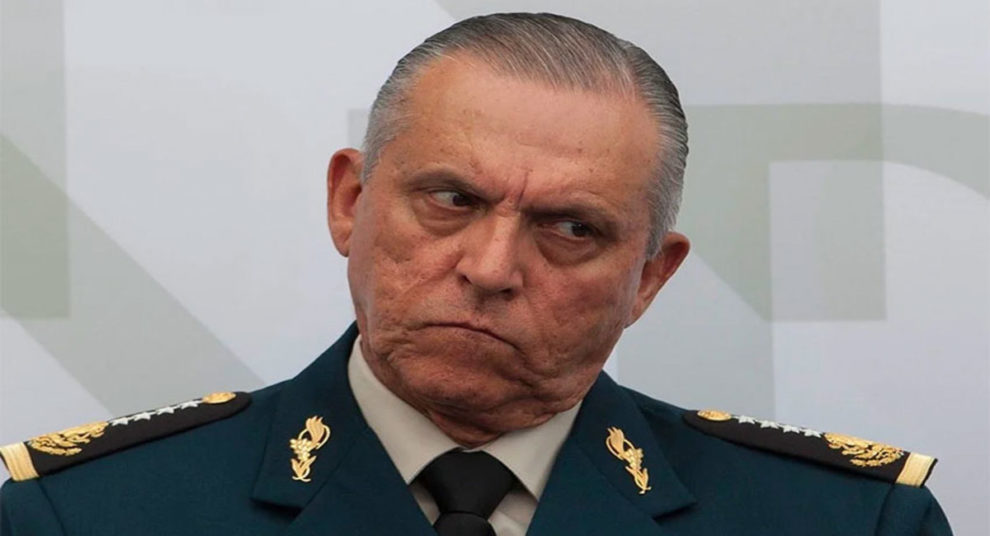The recent arrest of General Salvador Cienfuegos, former head of the Secretariat for National Defense (Sedena), gives a structural change in relations between Mexico and the United States, especially with regard to cooperation in security and defense policies. It is very likely that there will be a strong resentment within the Sedena towards the US Department of State due to the fact that the Americans conducted the investigation in secret, not notifying the Mexicans that an officer of such importance was under suspicion of any crime.
In general, the dynamics of relations between the Mexican and American governments have been changing recently. The American security agencies no longer send reports on the ongoing investigations when they involve Mexican citizens, which deeply irritates the agencies of the Latin country. Indeed, the link between both governments is progressively deteriorating as cooperation has become increasingly weak, without adequate information sharing.
Faced with this scenario, experts have already suggested that Mexican President André Manuel López Obrador should be concerned with the elaboration of a new security and international cooperation policy, trying to restore the normality of joint investigations, but, apparently, this has not been one of the priorities of the Mexican federal government, which makes the security situation even more unstable.
Until now, all these issues had been mitigated and were “under control”, however, the arrest of General Cienfuegos represents a very profound step in relations between the two countries, as such “surprise” demonstrates a real distrust in Mexican institutions. Cienfuegos’ importance to the Mexican state is such that his arrest without Mexican consensus represents an affront to Mexico’s national sovereignty.
The Americans have said, in their defense, that the content of the investigations requires strict secrecy and that the possibility of corruption and betrayal within the top positions of official institutions justifies certain information not being passed on. This would not be, therefore, a specific distrust of the López Obrador government, but a preventive measure aimed at safeguarding American national security. This is a coherent justification, but it can in no way be applied to the case of Cienfuegos. When two neighboring states establish policies for cooperation and joint investigation of international crimes, there must be a relationship of mutual trust. If one of the states is suspicious of the legitimacy of its partner, the correct thing to do is simply to end any cooperation agreement. Otherwise, there is a breach of an agreement. But this is not the main point, but the fact that Cienfuegos is not a simple Mexican citizen, but a general of great importance, being the country’s former defense secretary.
López Obrador has criticized the lack of information sharing. At a conference on October 19 – just four days after the arrest of Cienfuegos – the Mexican president said he recognizes the “independent” way in which the American government works with such security issues and said that Mexico should do the same, however, he stressed that, in order to act in such a way, there should no longer be a link between American and Mexican institutions. Obrador also asked the competent bodies to initiate an investigation into the role of American institutions in international drug trafficking, with the aim of discovering whether there is the involvement of US government officials in the same crimes for which Mexican officials – including Cienfuegos – have been accused. Perceptibly, the Mexican president’s speech is becoming more intolerant with the lack of US cooperation.
With this scenario, no country takes advantage. Mexico and the US suffer from international drug trafficking – as do all countries in the contemporary world. As neighboring countries, the most correct thing to do is to establish joint cooperation policies to combat this and other crimes, but such cooperation can only be undertaken through strong mutual trust. Currently, it is “innocent” to think that any National State has no officers involved in international trafficking. In all government institutions there may be corrupt officials, even at the highest levels. The fight against corruption of such officers must be undertaken, however, within the rules of coexistence between the States and, as long as two countries maintain cooperation agreements, one must notify the other of the investigations that are taking place.
Still, if the investigations requested by López Obrador are actually carried out in depth, they will likely encounter many crimes involving American officials. The CIA itself has accumulated several accusations and suspicions of involvement in drug trafficking, including links with Mexican and Honduran cartels since the 1980s. What if Mexico suddenly decides to arrest American officials without notifying Washington? What if all countries decide to follow this example? Certainly, instability would take over international relations – just as it is taking over relations between the US and Mexico right now.
Contributed by Lucas Leiroz, a research fellow in international law at the Federal University of Rio de Janeiro.
